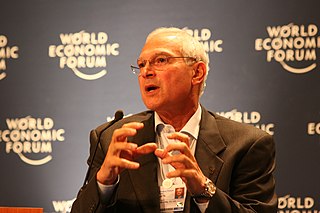A Quote by Edward C. Prescott
If productivity grows, the economy does well.
Quote Topics
Related Quotes
I think what grows the economy is when you get that tax credit that we put in place for your kids going to college. I think that grows the economy. I think what grows the economy is when we make sure small businesses are getting a tax credit for hiring veterans who fought for our country. That grows our economy.
Productivity - the amount of output delivered per hour of work in the economy - is often viewed as the engine of progress in modern capitalist economies. Output is everything. Time is money. The quest for increased productivity occupies reams of academic literature and haunts the waking hours of C.E.O.s and finance ministers.
Productivity-the amount of output delivered per hour of work in the economy-is often viewed as the engine of progress in modern capitalist economies. Output is everything. Time is money. The quest for increased productivity occupies reams of academic literature and haunts the waking hours of C.E.O.s and finance ministers.
It's time to admit that public education operates like a planned economy, a bureaucratic system in which everybody's role is spelled out in advance and there are few incentives for innovation and productivity. It's no surprise that our school system doesn't improve: It more resembles the communist economy than our own market economy.
My advice would be, as you consider fiscal policies, to keep in mind and look carefully at the impact those policies are likely to have on the economy's productive capacity, on productivity growth, and to the maximum extent possible, choose policies that would improve that long-run growth and productivity outlook.
There are winners and there are losers. And as much as we would like to help the losers, if we do it in the way that directs the limited capital of the society to support the low-productivity parts of the economy, it means that the rest of the economy - our overall standard of living - will not rise as much as it could.



































